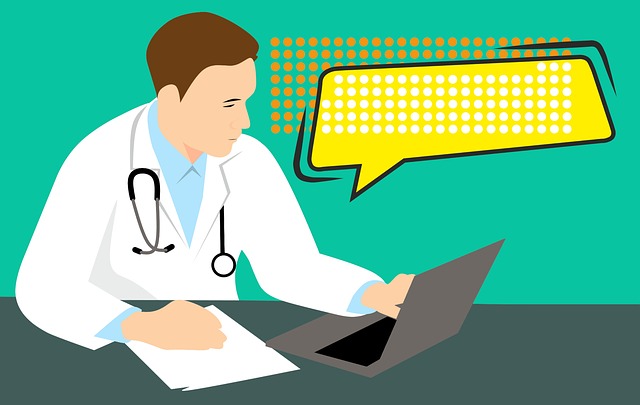
Medical laboratory technology workers test and analyze all fluids, tissues, and cells in the body. They provide data that can be used to aid doctors in diagnosing and evaluating the effectiveness or failure of treatments. Often, these professionals work in clinics and hospitals, but they may also work in other settings such as the federal government. They must be skilled in manual dexterity and pay attention to details. They may also be exposed to biohazardous substances. They may not have direct contact with patients depending upon the location.
Students will learn basic laboratory procedures, and how to perform diagnostic tests. They may work with pathologists, who study cells and tissue samples. They may also manage surgical teams. They might also prepare samples and take diagnostic images. They can even be trained for autopsies on the bodies of patients who have died.
The job market for medical lab tech is excellent. A majority of these jobs require an associate’s degree in the field. However, some employers prefer someone with a Bachelor's. Higher wages can be expected for those with a bachelor's. Some jobs require certification to increase job opportunities.

Specialists in medical lab technology might be of interest to people who work in phlebotomy or blood banking. They might also consider general certifications. There are many schools and hospitals that offer certificate programs. Career Star has information on these programs for those interested in medical laboratory technology. Alternatively, a few hospitals offer on-the-job training.
You can get a degree for medical lab technology in a short time. The program can be completed in as little as two years. After completion of the program, those who pass the certification exam can apply for membership in the American Society of Clinical Pathology. They may also be eligible for general certifications, such as the American Association of Bioanalysts. They will be well-prepared for careers in this area, regardless of how fast they complete their degree.
Associate's degrees are the first step in your journey to a career working in medical lab technology. The American Medical Association and National Accrediting Agency for Clinical Laboratory Sciences have to accredit the degree. An associate's degree is also an option to increase your earning potential as a laboratory technician.
Medical Laboratory Technology students can apply to the American Society of Clinical Pathology for certification. They may be eligible for general certifications like the American Association of Bioanalysts (or the American Medical Technologists). They may also apply to work at a blood bank, clinic, or other medical facility.

Depending on the specific needs of the hospital, some students may also be admitted to the program without a high school diploma. They must be approved by an admissions committee. It is also important to have hands-on experience in the field. Students will usually complete their lab experience with a clinical partner. This could be a hospital, private lab or other institution.
If you are interested in a career as a medical laboratory technician, the Advanced Certificate is for you. This 15 credit accelerated program enrolls individuals with specific pre-requisites. The NYS Department of Education approved this program. It is an alternative to a BSc. or M.L.S.
FAQ
How can our health system be improved?
Our health care system can be improved by ensuring everyone gets high-quality care regardless of where they live and what type of insurance they have.
So that children don't get preventable diseases, like rubella, measles and mumps (MMR), we need to ensure that they all receive the required vaccinations.
We must continue our efforts to lower the cost and make sure it remains available for everyone.
What is the role of the healthcare system?
A country's economy is only as strong as its health care system. It helps people live longer, healthier lives. It also creates work for nurses, doctors and other medical professionals.
Health care systems help ensure everyone has access to quality healthcare services, regardless of income level.
Understanding the workings of healthcare systems is vital if you plan to become a doctor, nurse, or other medical professional.
What are you opinion on the most pressing issues in public health?
Many people have problems with obesity, diabetes, heart disease and cancer. These conditions cause more deaths yearly than AIDS, car crashes, and murders combined. A poor diet, lack exercise, and smoking can all lead to high blood pressure as well as stroke, asthma and other health problems.
What is the difference between the health system and health care services?
Healthcare systems go beyond providing health services. They cover all aspects of life, from education to employment to housing and social security.
Healthcare services, on the other hand, focus on delivering medical treatment for specific conditions such as cancer, diabetes, mental illness, etc.
They may also be used to refer to generalist primary-care services that are provided by community-based practitioners under the guidance of an NHS hospital Trust.
Statistics
- About 14 percent of Americans have chronic kidney disease. (rasmussen.edu)
- Price Increases, Aging Push Sector To 20 Percent Of Economy". (en.wikipedia.org)
- The healthcare sector is one of the largest and most complex in the U.S. economy, accounting for 18% of gross domestic product (GDP) in 2020.1 (investopedia.com)
- Foreign investment in hospitals—up to 70% ownership- has been encouraged as an incentive for privatization. (en.wikipedia.org)
- Healthcare Occupations PRINTER-FRIENDLY Employment in healthcare occupations is projected to grow 16 percent from 2020 to 2030, much faster than the average for all occupations, adding about 2.6 million new jobs. (bls.gov)
External Links
How To
How to find home care facilities
Home care facilities provide assistance for people who require it. Home care facilities can be used by elderly or disabled individuals who are unable to get around on their own, as well those suffering from chronic diseases like Alzheimer's. These services include personal hygiene and meal preparation, laundry, cleaning as well as medication reminders and transportation. They often work with rehabilitation specialists, social workers and medical professionals.
Referrals from friends, family members or local businesses are the best way to locate a home care provider. Once you have found a couple of providers, it is time to get in touch with them to learn more about their qualifications. Providers should be flexible in their hours so they can fit into your busy schedule. Also, check if they offer 24/7 emergency response.
Consider asking your doctor for recommendations. If you don’t know where to begin, search online for “home health care” or “nursing home”. You can use websites like Yelp and Angie's List or HealthGrades to compare nursing homes.
To get more information, call your local Area Agency on Aging and Visiting Nurse Service Association. These organizations will have lists of agencies in your area that specialize in providing home care services.
A good agency for home care is vital as many agencies charge high prices. In fact, some agencies can charge up to 100% of an individual's monthly income. It is best to avoid this problem by choosing an agency with a high rating from the Better Business Bureau. Ask for references from previous clients.
Some states even require home care agencies to register with the State Department of Social Services. Find out the requirements for agency registration in your area by contacting your local government.
There are many things you need to remember when selecting a Home Care Agency:
-
Avoid any company asking you to pay upfront for services.
-
Look for a reputable and well-established business.
-
For those who are paying out-of-pocket for insurance, make sure you have proof.
-
You should ensure that the state licenses any agency you hire.
-
Get a written contract that outlines all costs involved with hiring an agency.
-
Confirm that the agency provides follow-up visits after discharge.
-
Ask for a list if credentials and certifications.
-
Never sign anything without having read it.
-
Read any fine print carefully.
-
Make sure the agency has insurance and is bonded.
-
Ask how long the agency has been operating.
-
Verify that the State Department of Social Welfare has licensed the agency.
-
Find out if complaints have been filed against the agency.
-
For information on home care agencies, contact your local government department.
-
Check that the answering service is certified to answer questions regarding home care.
-
To ensure that you fully understand the tax implications of home care, consult your accountant or attorney.
-
For every home care agency you contact, always get at least three bids
-
You can choose the lowest price, but not less than $30 an hour.
-
Remember that you may need to pay more than one visit to a home care agency daily.
-
Always read the contract carefully before signing it.